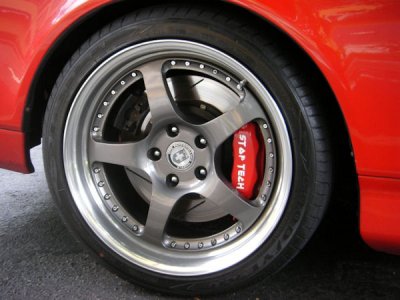I've read about the physics and arguments on both sides as to whether BBK does or does not decrease stopping distance. I'm no expert so I can honestly say I don't know.
A couple nights ago, I was accelerating fast to high speeds and my high beams caught the silhouette of 2 deer in the middle of the night. I slammed the brakes (first time really like this on Stoptech BBKs) and the car stopped on a dime. I was quite impressed as I had much more room than anticipated to spare and prevented a sure-fire front end collision.
I'm not saying OEM wouldn't have done the same--but if not, the BBK already paid for themselves.
A couple nights ago, I was accelerating fast to high speeds and my high beams caught the silhouette of 2 deer in the middle of the night. I slammed the brakes (first time really like this on Stoptech BBKs) and the car stopped on a dime. I was quite impressed as I had much more room than anticipated to spare and prevented a sure-fire front end collision.
I'm not saying OEM wouldn't have done the same--but if not, the BBK already paid for themselves.







